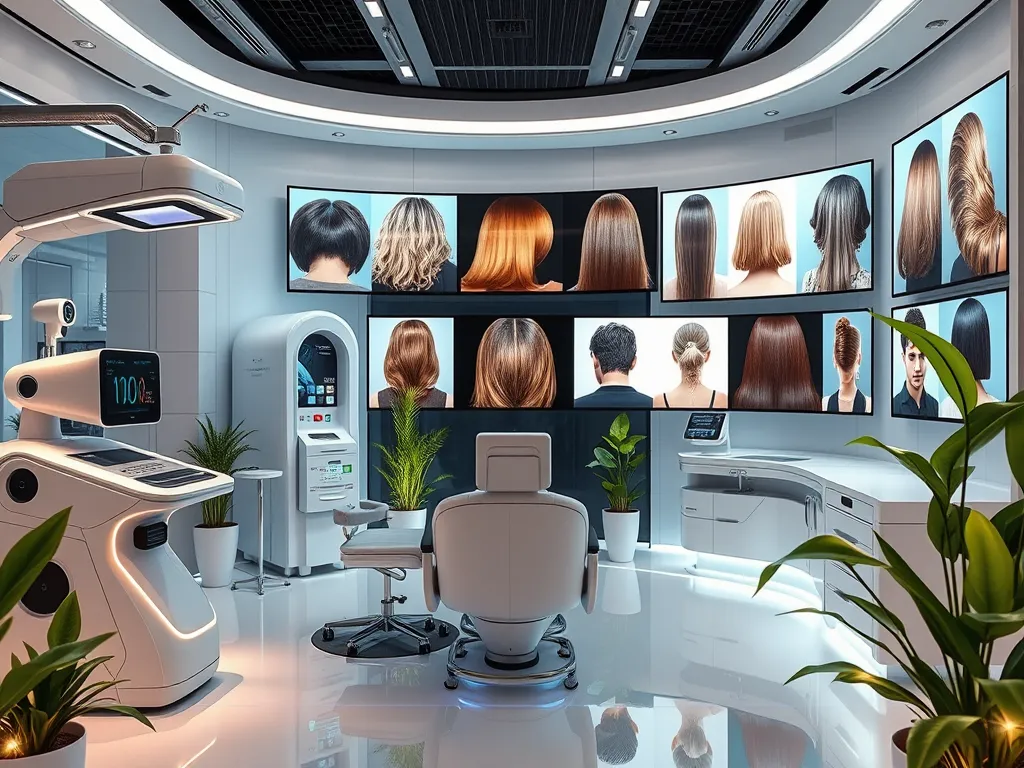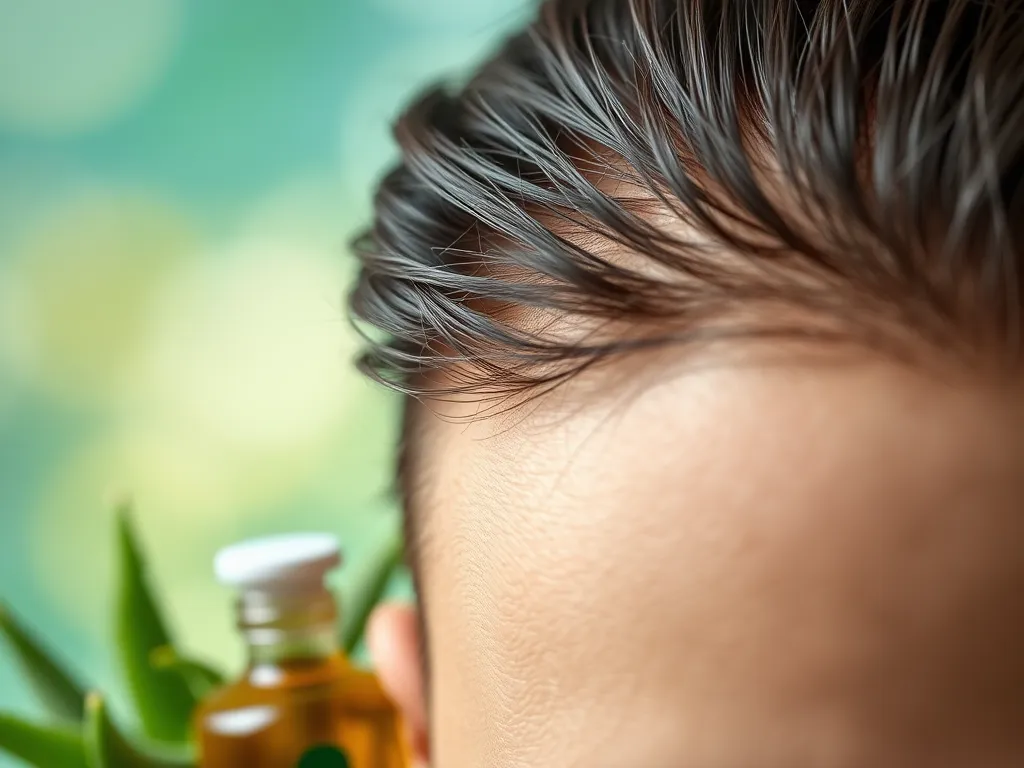Hair Loss Solutions: A Comprehensive Guide
Hair loss is a common issue that affects millions of people worldwide, leading to distress and decreased self-esteem. Understanding the various hair loss solutions available can empower individuals to make informed decisions about managing this condition. From over-the-counter treatments to lifestyle adjustments, there are numerous approaches one can take to combat hair loss and promote healthy hair growth.
The journey to finding effective hair loss solutions begins with understanding the underlying causes. Factors such as genetics, hormonal fluctuations, medical conditions, nutrition, and environmental influences play pivotal roles in hair loss. By dissecting these elements, individuals can better target their approach to treatment and maintenance.
In today's market, a variety of solutions is available, ranging from traditional methods and reliable medications to cutting-edge technologies. Each solution has its unique benefits and drawbacks, making it crucial for individuals to conduct thorough research before committing to a specific treatment plan. Furthermore, incorporating proper hair care practices can significantly enhance the effectiveness of these solutions.
Beyond the physical aspects, hair loss can also have emotional repercussions. Many individuals experience feelings of shame, embarrassment, or a decreased sense of identity due to hair loss. Understanding the emotional impact and finding healthy coping strategies is just as essential as physical treatment. Support systems and self-care can help individuals navigate this personal challenge more effectively.
Looking ahead, the future of hair loss treatments appears promising with continuous innovations in science and technology. Emerging therapies hold great potential for improving hair restoration outcomes, and ongoing research in areas like gene therapy and stem cell applications may redefine how we approach hair loss solutions. In this article, we will delve into various facets of hair loss, exploring causes, treatments, care tips, emotional impacts, and future directions.
Understanding Hair Loss Causes
Genetics and hereditary factors are among the most common causes of hair loss. Conditions like androgenetic alopecia, or male and female pattern baldness, can be inherited from either parent. Understanding one's family history can help in predicting the likelihood of experiencing similar hair loss patterns.
Hormonal changes can significantly affect hair health. Conditions such as pregnancy, menopause, and thyroid issues may lead to temporary hair thinning or loss. Hormones like dihydrotestosterone (DHT) are notorious for shrinking hair follicles, resulting in decreased hair growth.
Certain medical conditions are linked to hair loss, including autoimmune diseases, scalp infections, and severe illnesses. Conditions like alopecia areata cause the immune system to attack hair follicles, leading to sudden hair loss. Understanding these connections can guide individuals in seeking appropriate treatment options.
Nutritional deficiencies can adversely affect hair health. A lack of vitamins, minerals, and proteins can lead to weak, brittle hair that is prone to falling out. Iron, zinc, biotin, and vitamins A, C, D, and E are vital for healthy hair growth. Ensuring a balanced diet is critical in preventing hair loss.
Environmental influences, such as pollution, harsh weather, and exposure to chemicals, can contribute to hair damage and loss. Protecting hair from environmental stressors and adopting healthy styling habits can help mitigate these effects.
Effective Treatments for Hair Loss
Over-the-counter topical treatments, like minoxidil, are widely used for managing hair loss. These products stimulate hair follicles and promote blood flow to the scalp, helping to reverse hair thinning in some individuals. Regular use is essential for optimal results, usually taking several months before noticeable improvements are observed.
Prescription medications, such as finasteride, are effective for treating hair loss, particularly in men. This medication works by blocking the conversion of testosterone to DHT, reducing hair follicle shrinkage. Consulting a healthcare professional is vital to assess eligibility and understand potential side effects.
Surgical options like hair transplants offer a more permanent solution for hair loss. Follicular unit transplantation (FUT) and follicular unit extraction (FUE) are two common methods. While effective, these procedures can be costly and require careful consideration and professional guidance.
Laser therapy is an emerging treatment that uses low-level lasers to stimulate hair growth. This non-invasive approach is believed to enhance cellular activity and improve blood flow to the scalp, thus promoting hair regeneration. Individuals should consult with professionals to assess its effectiveness and suitability for their needs.
Natural remedies for promoting hair growth include essential oils, herbal supplements, and lifestyle changes. Products like rosemary oil, saw palmetto, and biotin have been suggested to promote hair health. However, scientific evidence regarding their efficacy varies, necessitating thorough research and consultation before use.
Hair Care and Maintenance Tips
Best practices for hair washing and drying include using a gentle shampoo and conditioner tailored for thinning hair. Avoiding excessive heat from blow dryers and minimizing the use of harsh hair styling products can help maintain hair health. It's also beneficial to wash hair less frequently to avoid stripping natural oils.
Choosing the right products for thinning hair is crucial. Look for sulfate-free shampoos, thickening conditioners, and hair serums that offer nourishment without weighing hair down. Consulting with a hair care specialist can help identify the best products suited for individual hair types.
Dietary tips for healthy hair growth involve incorporating nutrient-rich foods into your daily meals. Foods high in protein, healthy fats, iron, and vitamins can promote stronger and healthier hair. Staying hydrated plays a critical role in maintaining overall health, including hair health.
Protecting hair from environmental damage involves wearing hats in direct sunlight, reducing exposure to chlorine and saltwater, and avoiding harsh chemicals. Utilizing UV protection sprays and gentle care practices can mitigate the adverse effects of environmental factors on hair health.
Periodic scalp treatments for rejuvenation, such as exfoliation and hydration masks, can promote a healthy scalp environment. Regularly treating the scalp can enhance circulation and contribute to healthier hair growth.
Emotional Impact of Hair Loss
The psychological effects of hair loss can be profound. Many individuals experience anxiety, depression, and decreased self-esteem due to changes in their appearance. Acknowledging these feelings is essential for mental wellbeing and can guide individuals to seek the necessary support.
Building self-esteem and body image after hair loss can be a challenging journey. Engaging in activities that promote positive self-image and surrounding oneself with supportive friends and family can aid in rebuilding confidence.
Support groups and community resources provide a platform for individuals facing hair loss to share experiences, gain insights, and find comfort in knowing they are not alone. These groups often conduct meetings, offer counseling, and provide valuable resources to cope with hair loss challenges.
Coping strategies for hair loss may involve seeking professional help, exploring new hairstyles, or even considering hairpieces or wigs. Engaging in creative or enjoyable activities can also help divert attention from hair loss and promote mental wellbeing.
Personal stories of overcoming hair loss challenges often serve as a source of inspiration for those facing similar issues. Sharing journeys of resilience and acceptance can foster a supportive community and encourage individuals to embrace their unique beauty.
Future of Hair Loss Treatments
Innovations in hair restoration technology are rapidly advancing, with advancements in robotics and personalized medicine leading the charge. New techniques aim to improve surgical outcomes and recovery times for individuals seeking hair transplants.
Emerging treatments on the horizon, including platelet-rich plasma (PRP) therapy and new drug formulations, are showing promise in promoting hair growth. Continued research and clinical trials are paving the way for more effective solutions.
The role of stem cells in hair growth is a burgeoning area of research. Stem cell therapy has the potential to repair damaged hair follicles and enhance overall hair regeneration, promising exciting possibilities for future treatments.
The impact of gene therapy on hair loss is an emerging field, with studies focusing on correcting genetic mutations that contribute to hair loss. Such therapies may revolutionize how we approach genetic forms of hair loss, offering targeted and effective solutions.
Trends in preventive measures for hair loss are shifting towards holistic health approaches, emphasizing the importance of diet, stress management, and overall wellness. As awareness grows regarding the interconnectedness of physical and mental health, preventive strategies are becoming integral to hair loss solutions.





